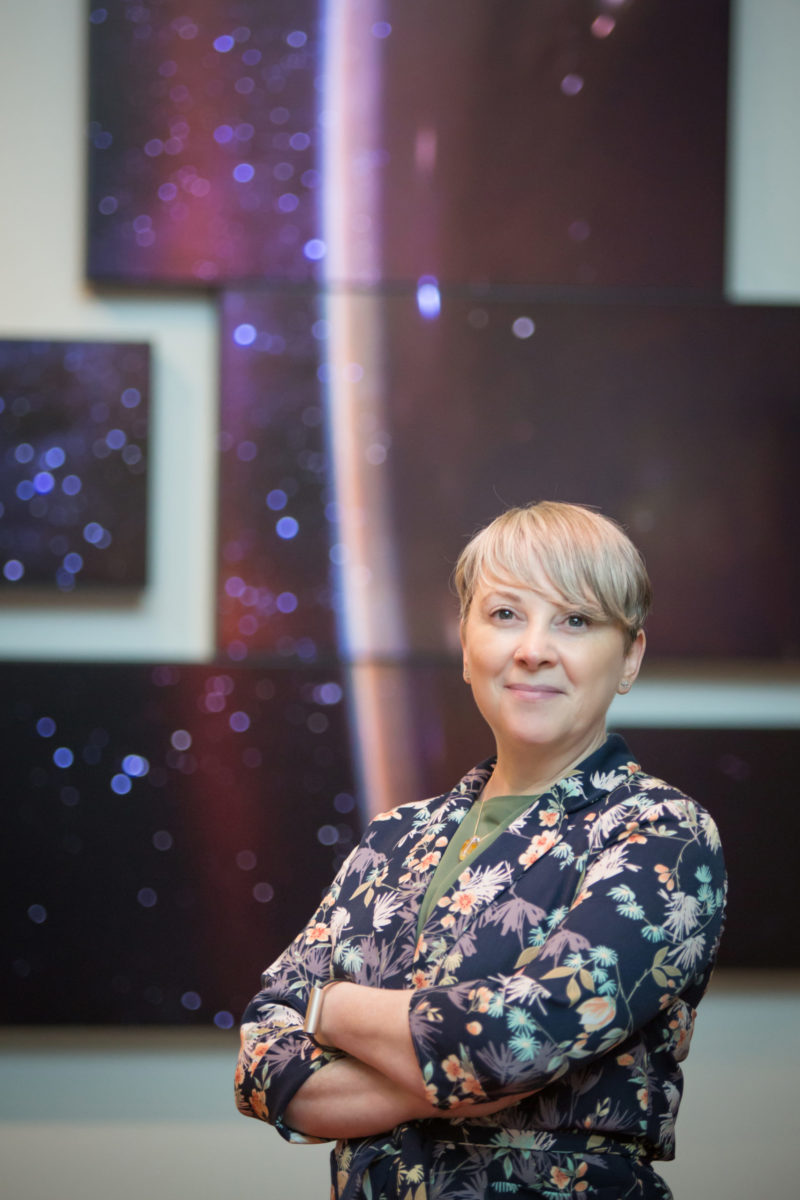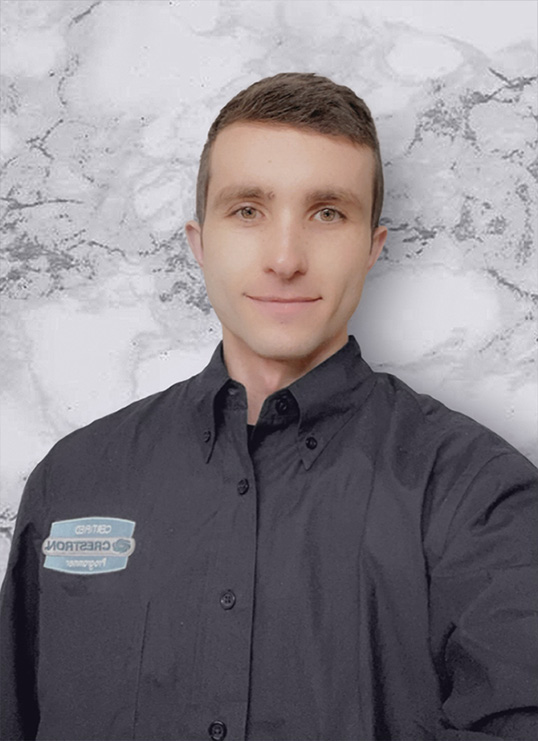Spotlight: Jimmy Vaughan – National Technical Director – UC Solutions – Crestron
In my biweekly blog series, I am highlighting some of the incredible people who work for the Audio Video Industry. In this post, we are profiling Jimmy Vaughan. Here is a brief introduction.
 Jimmy Vaughan is National Technical Director – UC Solutions at Crestron.
Jimmy Vaughan is National Technical Director – UC Solutions at Crestron.
1.Describe your journey in the AV industry? How did it start?
I might not have the experience that a lot of traditional AV folks started with, but in my teens growing up I was always in bands and playing musical instruments. That ranged from drums to guitar to even keyboards as I had a basic understanding of music theory from childhood learning and would apply my knowledge to different instruments. As I was always exploring, I was always the person who “figured out” the tech that was needed to get the job done. Whether that was an amplifier, new cable, Sound system or PA or even figuring out how to record what we were doing, I was always the one who enjoyed that figuring it out process.
 From there I went to school to be a television producer. My journey to becoming a producer took me from the Geraldo show to Inside Edition to MTV and others and then onto the World Wrestling Federation where I found a lot of success. Being a part of the “Attitude Era” in the television department was a very exciting time and allowed great professional success as the WWF saw tremendous growth and success during this time and those who were there during that growth were given exceptional opportunities. It was here that I became very technical as well and added that to my creative pursuits. Since I was very computer literate, I saw potential in the internet and pursued the streaming media opportunity that was clear was something revolutionary and with a background in TV I could provide guidance to help this fledgling industry possibly flourish.
From there I went to school to be a television producer. My journey to becoming a producer took me from the Geraldo show to Inside Edition to MTV and others and then onto the World Wrestling Federation where I found a lot of success. Being a part of the “Attitude Era” in the television department was a very exciting time and allowed great professional success as the WWF saw tremendous growth and success during this time and those who were there during that growth were given exceptional opportunities. It was here that I became very technical as well and added that to my creative pursuits. Since I was very computer literate, I saw potential in the internet and pursued the streaming media opportunity that was clear was something revolutionary and with a background in TV I could provide guidance to help this fledgling industry possibly flourish.
 I remember the discontent for digital media production from many sources of purists who had things to say like “you will never replace film” or “not everyone has a computer, but everyone has a TV” when I finally accepted the position that allowed me to be in the middle between the television and the .com that existed within the organization. This was the very beginning of what is now the WWE network as this was clearly where the industry was going, but this was 1997 where Windows 95 and dial up internet was something not a lot of people even had.
I remember the discontent for digital media production from many sources of purists who had things to say like “you will never replace film” or “not everyone has a computer, but everyone has a TV” when I finally accepted the position that allowed me to be in the middle between the television and the .com that existed within the organization. This was the very beginning of what is now the WWE network as this was clearly where the industry was going, but this was 1997 where Windows 95 and dial up internet was something not a lot of people even had.
After the success at WWE, I moved onto some .com dreams and when the bubble hit was when I joined Crestron. Crestron had the ability to connect over the internet to your control processor, but it was not being widely adopted and those who did consistently faced challenges and finding people with the knowledge to support it was a difficult task. I remember thinking during my interview, this company has a tremendous opportunity, but I don’t think they see the potential. Very similar to what I faced at WWE moving from TV to .com. Crestron taught me the ins and outs of their industry and I brought my .com and internet/streaming media knowledge here. That was in 2001 and it has been quite a journey since then to see the growth of not only the company, but also the industry.
2.What do you think are the challenges that are facing a new person who wants to join the industry?
The challenges that exist now are far different from those that existed when I first joined Crestron in the early part of this century, but some remain the same.
• How do you learn everything you need?
Everyone has a different way of learning and some industry organizations attempt to standardize training programs, but none of them are recognized outside the industry so it is all very specialized.
• Margins are shrinking on the products that are sold.
The race to the bottom for products to be cheaper and do more is evident. No longer are the needs of the 1% of users needed, now you need to satisfy the 99% and do it for much lower margins than were available before. Custom programming still exists for the top end rooms, but there are many more smaller spaces in an organization that also need technology and allows for a less custom solution.
• Technology is moving faster than ever.
If you subscribe to Moore’s law which states that the doubling of computer processing speed happens every 18 months, it is difficult to keep up. Some have suggested that in this current century we will not experience 100 years of advancement, but the equivalent of 20,000 years of advancement. Above that, it has also been suggested that there is the possibility that Singularity (the technical event horizon beyond human imagination) is a short 25 years away.
3.What are the positives of working in this industry?
There are so many positives about being in the industry, but one positive rises above and beyond the rest. It’s the PEOPLE! So many times, you will arrive at an industry event and it is like you are walking into that famous Boston Bar “Where everybody knows your name!” While there are many of us, the degrees of separation are miniscule, and you always know somebody.
 [RELATED] : If you have missed any of my previous interviews, please click here.
[RELATED] : If you have missed any of my previous interviews, please click here.
4.What in your opinion would you change in the industry? What are the negatives that are prevalent?
I think that there are still many stereotypes that exist in our industry and that is something that I do think needs to change. Just because this is “the way it’s always been” doesn’t mean that that’s the way that it must be. Breaking barriers and open thinking are sometimes shunned in our industry and my hope is that these stereotypes can be overcome.
5.Describe your ideal client? What do you wish clients to know before hiring you?
I want a client to know that I am listening, I am asking the questions because that client or coworker has a perspective that I respect and need their input to perform my job effectively. There is no single person who has all the answers and teamwork is needed in every aspect of the industry that we represent. Getting ideas from others is always better than walling yourself off.
 6.If you were going to start over, what would you do differently?
6.If you were going to start over, what would you do differently?
I can’t say that I would want to start over, but then again, I also wouldn’t want to do anything differently. It is the collection of my experiences and those whom have been a part of my journey that helps me excel and continue to learn. Thinking about doing something differently to me means that I think I have done something wrong. And while I have made many mistakes, those mistakes are what helps to you succeed.
It was Bill Gates who said, “It is fine to celebrate success, but it is more important to heed the lessons of failure.”
 7.Describe a typical workday for you. What are your daily disciplines?
7.Describe a typical workday for you. What are your daily disciplines?
My day begins very early and tends to be very structured as I live by my Outlook calendar. If something is not on my calendar, it generally will not get done as I book even my own single work time on my calendar and I insist that others adhere to my schedule on my calendar. I have pet peeve of being asked “when are you free?” or double-booking meetings by colleagues in the age of the digital workplace.
I am up at 5am and looking at both social media and reading articles that I curated the night before. I am usually starting my work email around 6am and that takes me awhile to get through.
For the past year, myself and Joe Sarrasin have a morning call from 7:45 to 8:30am every day. On this call, we can discuss the industry, the challenges that we faced the day before as well as the challenges that we have upcoming in that day. The 2 of us sync both first thing in the morning and at the end of the day most weekdays. This was one of the ways that we helped to get Mercury from concept to selling in market in under 18 months.
Also for the past few years I have subscribed to a Jeff Bezos idea that your important meetings must happen before lunch. This is the most effective and productive time of the day for me.
8.Describe the apps and gear that you use daily which makes you more productive?
Mobile tech has revolutionized the way that I get work done. I am a very digital workplace user and the environment at Crestron fosters that. Our conference rooms are modern tech and we live in the one touch join meeting era. There was a recent addition to our C suite that commented to me “my life used to be long dial strings and pin numbers and now I see the way meetings are supposed to work and I am no longer the last one to arrive in the room for the meeting with fear that I would not be able to join.”
9. How do you stay relevant in this industry?
You need to get out of your current role and speak to others that have a different perspective. You cannot go it alone and you need to have a network of people that you consistently reach out to and converse with. This group might change as your roles change, but this is not something that is ever handed to you. Taking industry training, going to trade shows, just posting your experiences or even your viewpoint online will result in you expanding your network and getting different perspectives.
For me, I write blog posts found here, I continue to be very active on LinkedIn and Twitter and I find myself even offering help within the Microsoft communities.
To know much more, please connect on Linkedin.
Also please drop your questions in the comments below.
*****
Did you like this post? Connect with me on LinkedIn or just sign up for my free email newsletter.





